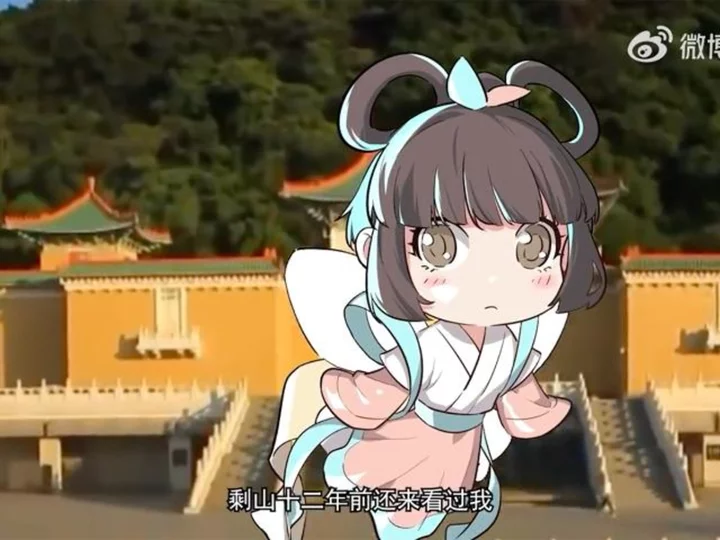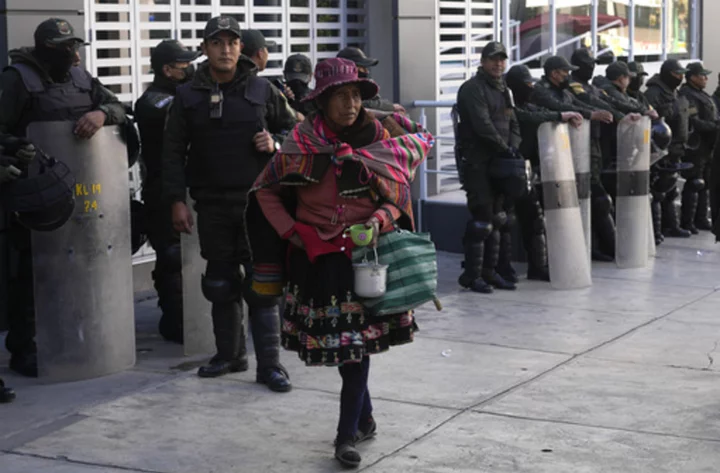One of China's most popular talent shows has been suspended after claims of mistreatment allegedly made by the late pop star Coco Lee sparked outrage on Chinese social media.
The fierce backlash against "Sing! China," a reality TV singing competition modeled after global hit "The Voice," has wiped out billions from its production company's market value over the past week following calls for a boycott from viewers and Lee's fans. It has also prompted the show's broadcaster to launch an investigation.
As public anger mounted, broadcaster Zhejiang Media Group announced Friday it would stop airing the show.
"Given that the problems of 'Sing! China' raised by viewers and internet users are being investigated, the program has been suspended," the broadcaster said in a statement on social media site Weibo.
Lee, an enormously influential Chinese American singer and actress, took part in "Sing! China" as a judge and mentor in 2022.
She died in early July aged 48, after a long battle with depression, according to her family.
The controversy erupted last week, when audio recordings surfaced online purported to be of Lee claiming she was mistreated by the show's production team.
In the nine-minute clip, the voice purported to be Lee accused the show of unfairly eliminating her mentee, who had received a higher score than other contestants who went through to the next round.
The voice in the recording claimed she was forced to leave the stage after protesting against the result, and was subsequently silenced and "threatened."
The speaker also accused the show's production team of deliberately causing her to fall on stage during her final filming last October, when she was suffering from a leg injury.
"I have been a singer for 28 years, but I was humiliated on stage. I was bullied," the voice said.
CNN cannot independently verify the authenticity of the recordings.
'Misunderstandings'
The audio clip shot around China's heavily censored internet and caused a public uproar. The incident soon became a top trending topic on China's microblogging site Weibo, where a related hashtag has been viewed 2.8 billion times.
In a statement last Thursday, "Sing! China" condemned the leaking of the recordings, claiming they were "maliciously edited." It did not dispute the voice in the recordings belonged to Lee and said previous "misunderstandings" with the star had already been cleared up.
"As a mentor of 'Sing! China 2022,' Coco Lee devoted herself to the job," the statement said. "The misunderstandings during that period had already been resolved by communication at the time. We won't further explain the issue out of respect to the deceased."
That statement did little to pacify the public anger, and calls for a boycott of the show continued online in China.
Since last Thursday, the day the recordings first emerged online, the share price of the show's producer Star CM Holdings has more than halved, wiping some $3 billion off its value.
CNN reached out to Star CM Holdings for comment earlier in the week and reached out again on Friday following the broadcaster's decision to suspend the show.
A number of former participants on the show and public figures have voiced support for Lee on social media.
Video clips showing Lee arguing on stage with the production team over the treatment of her mentee have also since surfaced on Chinese social media, adding to the growing public anger.
In a previous statement released last Sunday, Zhejiang Media Group acknowledged the show had encountered problems and "fallen short of the expectations" of its viewers.
It urged the show's production team to "listen to everyone's opinions seriously and effectively maintain fairness in the program so that every participant is respected."
"In response to the issues that everyone is concerned about, we will further investigate and verify in a responsible manner," it added.
The boycott against "Sing! China" has also spread to the show's sponsors. On Weibo, users flooded the sponsors' accounts with comments urging them to withdraw investment from the show.
On Friday, the suspension of the show became a top trending topic on Weibo, attracting 100 million views in less than an hour. Many users welcomed the move, calling for a thorough investigation. Others called for the program to be banned permanently.
Born in Hong Kong and raised in the United States, Lee found success in Asia throughout the 1990s, selling millions of albums with songs in English, Mandarin and Cantonese.
Lee lent her voice to the Disney heroine Fa Mulan in the Mandarin version of 'Mulan,' released in 1998, and was best known for performing an Oscar-nominated song in the 2000 hit film "Crouching Tiger, Hidden Dragon."









